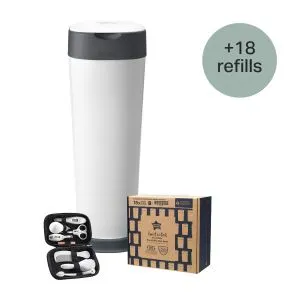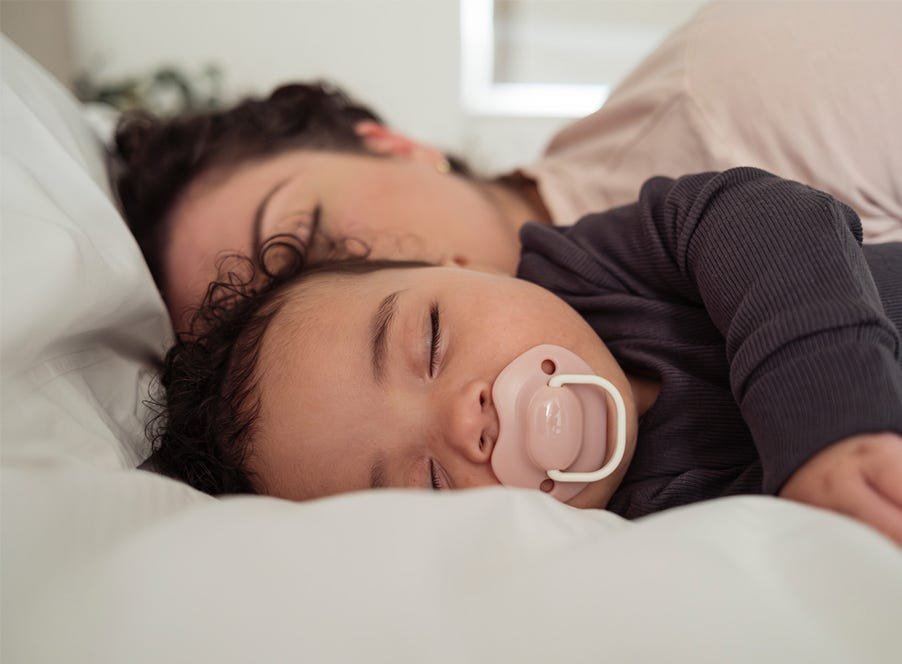
Ultimate XL Nappy Disposal Bundle with 18 Refills
Bundle & Save 40%
Subscription orders can be cancelled at anytime. Free delivery on all subsequent subscription orders. Find out more about subscriptions.
They’re easy and fuss free
Your products are automatically sent to you
You save up to 10% when you sign up for a subscription
You can cancel at any time

Some parents choose to share a bed with their baby while they're young, while others choose to put them to bed in a cot or Moses basket.
It can be difficult to know where's best for your baby to sleep, especially with so much controversy around the subject of co-sleeping.
The choice to co-sleep is a very personal one, and parents should make an informed decision based on their own situations. This guide is here to provide you with the information you need to decide whether co-sleeping is right for you and your baby.
Co-sleeping is the term used to describe the practice of parents and babies or young children sleeping in the same bed. It means that baby shares a bed with their parent(s) for most of the night, not just to be soothed or fed.
Guidelines state that during the first six months, it's safest for your baby to be put to sleep in a cot or Moses basket in your room. But according to NCT, co-sleeping is very common. Around half of all British parents will share their bed with their newborn baby in the first months.
Sudden Infant Death Syndrome (SIDS) is rare, but it's a risk that's sometimes linked to co-sleeping.
Co-sleeping can be dangerous if...
If any of the above apply to you and your baby, you should never co-sleep with them.
To make co-sleeping as safe as possible, you should...
You should follow these same safe sleep guidelines if your baby sleeps next to you in a Moses basket or bedside cot.
Explore the Range
UNICEF has a range of resources on infant sleep and caring for babies at night.
Basis provides access to research-based evidence about biologically normal infant sleep.
The Lullaby Trust provides lifesaving advice to help parents and carers reduce the risk of Sudden Infant Death Syndrome.